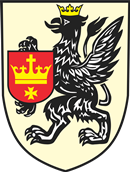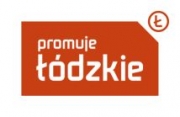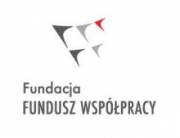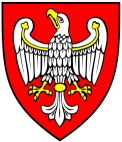EVALU
Od 18 lat współtworzymy rynek ewaluacji w Polsce
Projekty
Zaznaczenie lub odznaczenie kryteriów filtrowania w poszczególnych kategoriach możliwe po kliknięciu myszą z przytrzymanym klawiszem CTRL
Badanie pn. „Ocena zastosowanych rozwiązań w obszarze systemu oceny i wyboru projektów (w szczególności kryteriów wyboru projektów) pod kątem wpływu na wybór inwestycji zapewniających skuteczną i najbardziej efektywną realizację XII Priorytetu PO IiŚ”
Przeprowadzenie strategicznej oceny oddziaływania na środowisko Strategii Rozwoju MOFu oraz planów działania w ramach projektu pn.:„Starogardzki Miejski Obszar Funkcjonalny – nowy wymiar partnerstwa na rzecz rozwoju” współfinansowanego w ramach EFRR
Ewaluacja ex-ante projektu regionalnego programu operacyjnego Województwa Małopolskiego na lata 2014-2020
Potencjał projektów kluczowych, w tym zintegrowanych i partnerskich możliwych do realizacji w regionie łódzkim w nowym okresie programowania (2014-2020)
Badanie ewaluacyjne projektu „Decydujmy razem. Wzmocnienie mechanizmów partycypacyjnych w kreowaniu i wdrażaniu polityk publicznych oraz podejmowaniu decyzji publicznych” realizowanego w ramach Działania 5.3 Priorytetu V POKL
Ewaluacja śródokresowa działania Programu „Młodzież w działaniu” oraz działających w ramach Narodowej Agencji Programu „Młodzież w działaniu” Centrum Współpracy z Europą Wschodnią i Krajami Kaukazu SALTO oraz EURODESK Polska
Głównym celem badania było uzyskanie pogłębionej wiedzy na temat dotychczasowych efektów Programu „Młodzież w działaniu” w Polsce na poziomie wpływu na beneficjentów Programu oraz szersze otoczenie społeczne. Badanie uwzględni ponadto działania powiązane z Programem realizowane przez Centrum Współpracy z Krajami Europy Wschodniej i Kaukazu oraz Eurodesk Polska.
Zamawiający: Fundacja Rozwoju Systemu Edukacji, ul. Mokotowska 43, 00-551 Warszawa
Wpływ EFS na spójność terytorialną województwa wielkopolskiego
Przygotowanie broszur skierowanych do potencjalnych beneficjentów działań Programu Rozwoju Obszarów Wiejskich 2007-2013 wdrażanych przez Samorząd Województwa Mazowieckiego
Z chwilą akcesji do Unii Europejskiej w 2004 roku, przed Polską pojawiły się nowe wyzwania związane z koniecznością intensywnego dostosowywania oraz restrukturyzacji obszarów wiejskich. Główne środki finansowe w ramach obecnej perspektywy finansowej Unii Europejskiej przeznaczone na przemiany strukturalne na obszarach wiejskich są dostępne za pomocą Programu Rozwoju Obszarów Wiejskich 2007-2013.
Ewaluacja wpływu Regionalnego Programu Operacyjnego Województwa Świętokrzyskiego na lata 2007-2013 w zakresie zwiększenia atrakcyjności ośrodków miejskich i centrów gmin
Głównym celem badania była ocena wpływu inwestycji realizowanych w ramach 6 Osi priorytetowej RPOWŚ 2007-2013 na zwiększenie atrakcyjności ośrodków miejskich i centrów gmin.
Zamawiający: Województwo Świętokrzyskie/Urząd Marszałkowski Województwa Świętokrzyskiego, al. IX Wieków Kielc 3, 25-516 Kielce
Strony
- « pierwsza
- ‹ poprzednia
- …
- 13
- 14
- 15
- 16
- 17
- 18
- 19
- 20
- 21
- …
- następna ›
- ostatnia »
EVALU participates in the CO-SECUR project to work on a European security protocol for public spaces

EVALU takes part in the project financed with 2 million euros by the Horizon Europe programme of the European Commission.







